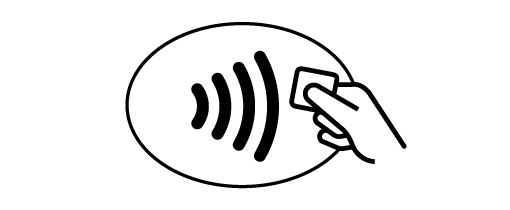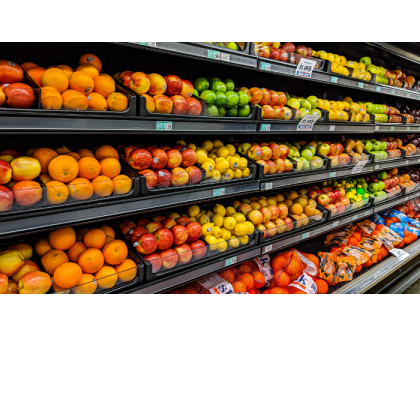How to stay safe while shopping for groceries
Social distancing is a new but very important part of our lives at the moment. Many shops have added delivery services and click and collect alternatives, but for many this is not an option. In that case, we've collected the top general advice to show how to keep yourself and others safe from beginning to end when you go out for groceries.
1. Do not leave the house if you feel sick
Keep your community safe and don’t go out for groceries if you are sick. Ask a family member, friend or neighbour to purchase and drop off groceries outside your home if you're in urgent need of items. You can also use online shopping however always check first as these services do have a longer lead time due to demand.
2. Write a list
Be prepared, make a list of what you need before you leave home. It’s helpful to organise items in categories. For example, fresh produce, dairy, frozen goods etc. Then you can efficiently pick up all the items you need as you go through each section.
Making a list on paper that you can dispose of means you won’t need to touch your phone as you do your shopping, avoiding possible cross-contamination.
3. Shop alone
This helps you by reducing the number of people in your household that could possibly be exposed, and helps the community by limiting the number of people in the supermarket.
4. Stay at least 1.5m away from others
At the time of writing, the Australian government recommends staying at least 1.5 metres (approximately two arms lengths) away from people outside of your household. This includes both staff and shoppers. This will require patience, as this can be difficult in small aisles, and you may have to form a queue towards popular items such as milk.
Be aware of markings on the floor near the checkout that define where you must stand in the queue. Where there are no markings, put the correct distance between you and the person in front. At counters such as the deli, fishmonger or butchers, stand well away from the counter and avoid touching surfaces.
5. Be aware of shared handles, such as shopping baskets, trolleys and fridge doors
At some stores they have dedicated staff to disinfecting trolleys and baskets. Where you can’t see this, disinfect them with wipes. Immediately dispose of wipes in a bin, do not leave them where other people may come into contact with them.
If you use your own bags, you can avoid touching shared baskets and trolleys. However, this may not be possible with a large shop and bags should be cleaned after shopping.
6. Don’t touch your face
Especially your eyes, nose and mouth. Practise good hygiene, such as covering coughs with your elbow or tissue. See more advice for good hygiene from the Australian government here.
7. Only touch items you want to purchase
Avoid touching items you don’t want to buy. Having a list can help with this.
8. Pay with card instead of cash
Using tap and go payments with cards can minimise the risk of transmission by reducing the need to exchange cash between people.
Top tip: You don’t have to physically touch your card to the EFTPOS terminal. Hold your card 1-2cm from the contactless payment area of the terminal, which will show this symbol:

Most terminals have indicators that will turn green and it will beep when your payment is successful.
9. Use hand sanitiser
The Australian government recommends using alcohol-based hand sanitiser when you can't wash your hands with soap and water. Many shops have alcohol-based hand sanitiser available. Use this or your own alcohol-based hand sanitiser as you're leaving the store.
10. Wash your hands
Whether or not you used hand sanitiser after your shop, once you’ve returned home wash your hands thoroughly with soap and water for at least 20 seconds. You should also wash your hands after putting away your groceries. Continue to follow the standard hygiene practice of washing your hands before and after handling food or eating and after going to the toilet.
Should I wear a mask to go grocery shopping?
The Australian government continues to advise that only those who are ill wear masks. For more information click here.
Should I wear gloves when grocery shopping?
Gloves will pick up particles, bacteria and the virus, so if you are wearing gloves and still touch your face it will not help. It has been recommended by the Australian government to supermarket staff that if you are well there is no need to wear gloves, and that "wearing gloves can lead to complacency and reduced hand washing, potentially increasing the risk of contracting the virus."
DISCLAIMER: myfoodbook are not health experts. Follow the advice of your doctor or local government organisation. All information relating to the Australian government was correct at the time of writing.





